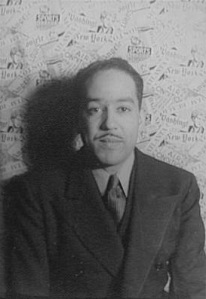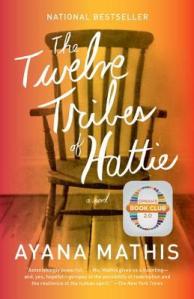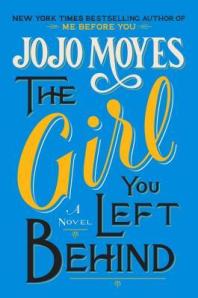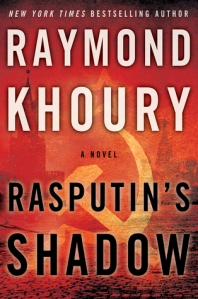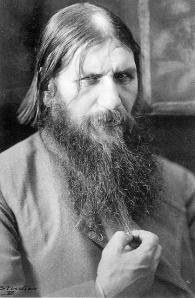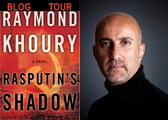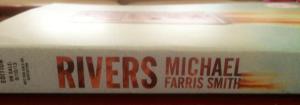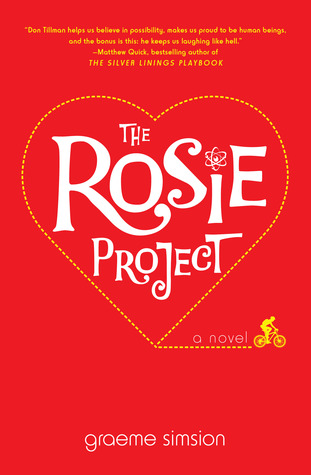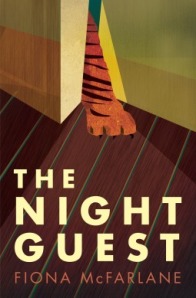Fall is finally here, bringing cooler weather and big books. No, I don’t mean the ones you could use as doorstops. We’re talking great reads from both established and new writers, novels that are sure to make many best-of-year lists.
What To Read Now:

From Little, Brown and Company
A brilliant literary debut, inspired by a true story: the final days of a young woman accused of murder in Iceland in 1829. Set against Iceland’s stark landscape, Hannah Kent brings to vivid life the story of Agnes, who, charged with the brutal murder of her former master, is sent to an isolated farm to await execution. Horrified at the prospect of housing a convicted murderer, the family at first avoids Agnes. Only Tóti, a priest Agnes has mysteriously chosen to be her spiritual guardian, seeks to understand her. But as Agnes’s death looms, the farmer’s wife and their daughters learn there is another side to the sensational story they’ve heard. Riveting and rich with lyricism, BURIAL RITES evokes a dramatic existence in a distant time and place, and asks the question, how can one woman hope to endure when her life depends upon the stories told by others?
A much-buzzed about (and well-deserved!) book from a brilliant new literary voice.
Coming Soon:
Arcade Publishing, October 1
Sex is forbidden at the Dasgupta Institute, the Buddhist retreat where Beth Marriot has taken refuge, and that’s a big advantage. Beth has been working as a server, assisting in the kitchen and helping out–discreetly, so the meditators aren’t disturbed. The meditators are making big sacrifices to come here and change their lives. So the servers must observe the rules, and silence and separation of the sexes are chief among them.But Beth is fighting demons. She came here at a crossroads in her life, caught between an older lover who wouldn’t choose her and a young one who wants to marry her, and she may have caused another man’s death when she risked her own life swimming out to sea in a gale. A singer in a band, vital and impulsive, fleshy and sexy, she has been a rebel and a provocateur. And now, conflicted and wandering, she stumbles on a diary in the men’s dorm and cannot keep away from it, or the man who wrote it. At the same time, desiring–all too hard–to achieve the inner peace that Buddhist practice promises, she yearns for the example set by the slim, silent, white-clad teacher Mi Nu, and maybe yearns for something more.Comic and poignant at the same time, swiftly paced and completely engaging, Sex Is Forbidden is an entertaining novel about two profoundly different attitudes to life, and Beth–our narrator–is a character to be savored.
has been working as a server, assisting in the kitchen and helping out–discreetly, so the meditators aren’t disturbed. The meditators are making big sacrifices to come here and change their lives. So the servers must observe the rules, and silence and separation of the sexes are chief among them.But Beth is fighting demons. She came here at a crossroads in her life, caught between an older lover who wouldn’t choose her and a young one who wants to marry her, and she may have caused another man’s death when she risked her own life swimming out to sea in a gale. A singer in a band, vital and impulsive, fleshy and sexy, she has been a rebel and a provocateur. And now, conflicted and wandering, she stumbles on a diary in the men’s dorm and cannot keep away from it, or the man who wrote it. At the same time, desiring–all too hard–to achieve the inner peace that Buddhist practice promises, she yearns for the example set by the slim, silent, white-clad teacher Mi Nu, and maybe yearns for something more.Comic and poignant at the same time, swiftly paced and completely engaging, Sex Is Forbidden is an entertaining novel about two profoundly different attitudes to life, and Beth–our narrator–is a character to be savored.
Faber & Faber, October 1
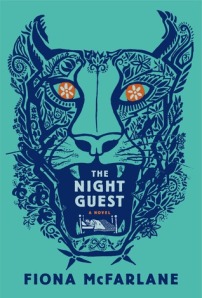 A mesmerizing first novel about trust, dependence, and fear, from a major new writer. Ruth is widowed, her sons are grown, and she lives in an isolated beach house outside of town. Her routines are few and small. One day a stranger arrives at her door, looking as if she has been blown in from the sea. This woman—Frida—claims to be a care worker sent by the government. Ruth lets her in.
A mesmerizing first novel about trust, dependence, and fear, from a major new writer. Ruth is widowed, her sons are grown, and she lives in an isolated beach house outside of town. Her routines are few and small. One day a stranger arrives at her door, looking as if she has been blown in from the sea. This woman—Frida—claims to be a care worker sent by the government. Ruth lets her in.
Now that Frida is in her house, is Ruth right to fear the tiger she hears on the prowl at night, far from its jungle habitat? Why do memories of childhood in Fiji press upon her with increasing urgency? How far can she trust this mysterious woman, Frida, who seems to carry with her her own troubled past? And how far can Ruth trust herself? The Night Guest, Fiona McFarlane’s hypnotic first novel, is no simple tale of a crime committed and a mystery solved. This is a tale that soars above its own suspense to tell us, with exceptional grace and beauty, about aging, love, trust, dependence, and fear; about processes of colonization; and about things (and people) in places they shouldn’t be. Here is a new writer who comes to us fully formed, working wonders with language, renewing our faith in the power of fiction to describe the mysterious workings of our minds.
Simon & Schuster, October 1

An international sensation, this hilarious, feel-good novel is narrated by an oddly charming and socially challenged genetics professor on an unusual quest: to find out if he is capable of true love. Don Tillman, professor of genetics, has never been on a second date. He is a man who can count all his friends on the fingers of one hand, whose lifelong difficulty with social rituals has convinced him that he is simply not wired for romance. So when an acquaintance informs him that he would make a “wonderful” husband, his first reaction is shock. Yet he must concede to the statistical probability that there is someone for everyone, and he embarks upon The Wife Project. In the orderly, evidence-based manner with which he approaches all things, Don sets out to find the perfect partner. She will be punctual and logical—most definitely not a barmaid, a smoker, a drinker, or a late-arriver.
Yet Rosie Jarman is all these things. She is also beguiling, fiery, intelligent—and on a quest of her own. She is looking for her biological father, a search that a certain DNA expert might be able to help her with. Don’s Wife Project takes a back burner to the Father Project and an unlikely relationship blooms, forcing the scientifically minded geneticist to confront the spontaneous whirlwind that is Rosie—and the realization that love is not always what looks good on paper. The Rosie Project is a moving and hilarious novel for anyone who has ever tenaciously gone after life or love in the face of overwhelming challenges.
William Morrow, October 1
 Set against the backdrop of the historic 1927 Mississippi Flood, a story of murder and moonshine, sandbagging and saboteurs, dynamite and deluge-and a man and a woman who find unexpected love-from Tom Franklin, author of the bestselling Crooked Letter, Crooked Letter, and his wife, Pushcart Prize-winning poet Beth Ann Fennelly. The year is 1927. As rains swell the Mississippi, the mighty river threatens to burst its banks and engulf all in its path, including federal revenue agent Ted Ingersoll and his partner, Ham Johnson. Arriving in the tiny hamlet of Hobnob, Mississippi, to investigate the disappearance of two fellow agents on the trail of a local bootlegger, they unexpectedly find an abandoned baby boy at a crime scene. An orphan raised by nuns, Ingersoll is determined to find the infant a home, a search that leads him to Dixie Clay Holliver. A lonely woman married too young to a charming and sometimes violent philanderer, Dixie Clay has lost her only child to illness and is powerless to resist this second chance at motherhood. From the moment they meet, Ingersoll and Dixie Clay are drawn to each other. He has no idea that she’s the best bootlegger in the county and may be connected to the missing agents. And while he seems kind and gentle, Dixie Clay knows he is the enemy and must not be trusted. Then a deadly new peril arises, endangering them all. A saboteur, hired by rich New Orleans bankers eager to protect their city, is planning to dynamite the levee and flood Hobnob, where the river bends precariously. Now, with time running out, Ingersoll, Ham, and Dixie Clay must make desperate choices, choices that will radically transform their lives-if they survive.
Set against the backdrop of the historic 1927 Mississippi Flood, a story of murder and moonshine, sandbagging and saboteurs, dynamite and deluge-and a man and a woman who find unexpected love-from Tom Franklin, author of the bestselling Crooked Letter, Crooked Letter, and his wife, Pushcart Prize-winning poet Beth Ann Fennelly. The year is 1927. As rains swell the Mississippi, the mighty river threatens to burst its banks and engulf all in its path, including federal revenue agent Ted Ingersoll and his partner, Ham Johnson. Arriving in the tiny hamlet of Hobnob, Mississippi, to investigate the disappearance of two fellow agents on the trail of a local bootlegger, they unexpectedly find an abandoned baby boy at a crime scene. An orphan raised by nuns, Ingersoll is determined to find the infant a home, a search that leads him to Dixie Clay Holliver. A lonely woman married too young to a charming and sometimes violent philanderer, Dixie Clay has lost her only child to illness and is powerless to resist this second chance at motherhood. From the moment they meet, Ingersoll and Dixie Clay are drawn to each other. He has no idea that she’s the best bootlegger in the county and may be connected to the missing agents. And while he seems kind and gentle, Dixie Clay knows he is the enemy and must not be trusted. Then a deadly new peril arises, endangering them all. A saboteur, hired by rich New Orleans bankers eager to protect their city, is planning to dynamite the levee and flood Hobnob, where the river bends precariously. Now, with time running out, Ingersoll, Ham, and Dixie Clay must make desperate choices, choices that will radically transform their lives-if they survive.
Viking Adult, October 1

A glorious, sweeping novel of desire, ambition, and the thirst for knowledge, from the # 1 New York Times bestselling author of Eat, Pray, Love and Committed. In The Signature of All Things, Elizabeth Gilbert returns to fiction, inserting her inimitable voice into an enthralling story of love, adventure and discovery. Spanning much of the eighteenth and nineteenth centuries, the novel follows the fortunes of the extraordinary Whittaker family as led by the enterprising Henry Whittaker—a poor-born Englishman who makes a great fortune in the South American quinine trade, eventually becoming the richest man in Philadelphia. Born in 1800, Henry’s brilliant daughter, Alma (who inherits both her father’s money and his mind), ultimately becomes a botanist of considerable gifts herself. As Alma’s research takes her deeper into the mysteries of evolution, she falls in love with a man named Ambrose Pike who makes incomparable paintings of orchids and who draws her in the exact opposite direction—into the realm of the spiritual, the divine, and the magical. Alma is a clear-minded scientist; Ambrose a utopian artist—but what unites this unlikely couple is a desperate need to understand the workings of this world and the mechanisms behind all life. Exquisitely researched and told at a galloping pace, The Signature of All Things soars across the globe—from London to Peru to Philadelphia to Tahiti to Amsterdam, and beyond. Along the way, the story is peopled with unforgettable characters: missionaries, abolitionists, adventurers, astronomers, sea captains, geniuses, and the quite mad. But most memorable of all, it is the story of Alma Whittaker, who—born in the Age of Enlightenment, but living well into the Industrial Revolution—bears witness to that extraordinary moment in human history when all the old assumptions about science, religion, commerce, and class were exploding into dangerous new ideas. Written in the bold, questing spirit of that singular time, Gilbert’s wise, deep, and spellbinding tale is certain to capture the hearts and minds of readers.
W.W. Norton & Company, October 7
In this heartbreakingly beautiful book of disillusioned intimacy and persistent yearning, beloved and celebrated author Andre Dubus III explores the bottomless needs and stubborn weaknesses of people seeking gratification in food and sex, work and love. In these linked novellas in which characters walk out the back door of one story and into the next, love is “dirty”—tangled up with need, power, boredom, ego, fear, and fantasy. On the Massachusetts coast north of Boston, a controlling manager, Mark, discovers his wife’s infidelity after twenty-five years of marriage. An overweight young woman, Marla, gains a romantic partner but loses her innocence. A philandering bartender/aspiring poet, Robert, betrays his pregnant wife. And in the stunning title novella, a teenage girl named Devon, fleeing a dirty image of her posted online, seeks respect in the eyes of her widowed great-uncle Francis and of an Iraq vet she’s met surfing the Web. Slivered by happiness and discontent, aging and death, but also persistent hope and forgiveness, these beautifully wrought narratives express extraordinary tenderness toward human beings, our vulnerable hearts and bodies, our fulfilling and unfulfilling lives alone and with others.
III explores the bottomless needs and stubborn weaknesses of people seeking gratification in food and sex, work and love. In these linked novellas in which characters walk out the back door of one story and into the next, love is “dirty”—tangled up with need, power, boredom, ego, fear, and fantasy. On the Massachusetts coast north of Boston, a controlling manager, Mark, discovers his wife’s infidelity after twenty-five years of marriage. An overweight young woman, Marla, gains a romantic partner but loses her innocence. A philandering bartender/aspiring poet, Robert, betrays his pregnant wife. And in the stunning title novella, a teenage girl named Devon, fleeing a dirty image of her posted online, seeks respect in the eyes of her widowed great-uncle Francis and of an Iraq vet she’s met surfing the Web. Slivered by happiness and discontent, aging and death, but also persistent hope and forgiveness, these beautifully wrought narratives express extraordinary tenderness toward human beings, our vulnerable hearts and bodies, our fulfilling and unfulfilling lives alone and with others.
Dutton Adult, October 8
 An ingenious, fast-paced historical thriller from the author of the New York Times bestseller The Last Templar. On a cold, bleak day in 1916, all hell breaks loose in a mining pit in the Ural Mountains. Overcome by a strange paranoia, the miners attack one another, savagely and ferociously. Minutes later, two men—a horrified scientist and Grigory Rasputin, trusted confidant of the tsar—hit a detonator, blowing up the mine to conceal all evidence of the carnage. In the present day, FBI agent Sean Reilly’s search for Reed Corrigan, the CIA mindcontrol spook who brainwashed Reilly’s son, takes a backseat to a new, disturbing case. A Russian embassy attaché seems to have committed suicide by jumping out of a fourth-floor window in Queens. The apartment’s owners, a retired physics teacher from Russia and his wife, have gone missing, and further investigation reveals that the former may not be who the FBI believe him to be.
An ingenious, fast-paced historical thriller from the author of the New York Times bestseller The Last Templar. On a cold, bleak day in 1916, all hell breaks loose in a mining pit in the Ural Mountains. Overcome by a strange paranoia, the miners attack one another, savagely and ferociously. Minutes later, two men—a horrified scientist and Grigory Rasputin, trusted confidant of the tsar—hit a detonator, blowing up the mine to conceal all evidence of the carnage. In the present day, FBI agent Sean Reilly’s search for Reed Corrigan, the CIA mindcontrol spook who brainwashed Reilly’s son, takes a backseat to a new, disturbing case. A Russian embassy attaché seems to have committed suicide by jumping out of a fourth-floor window in Queens. The apartment’s owners, a retired physics teacher from Russia and his wife, have gone missing, and further investigation reveals that the former may not be who the FBI believe him to be.
Joined by Russian Federal Security Service agent Larisa Tchoumitcheva, Reilly’s investigation of the old man’s identity will uncover a desperate search for a small, mysterious device, with consequences that reach back in time and which, in the wrong hands, could have a devastating impact on the modern world. Packed with the twists, intrigue, and excitement that Khoury’s many fans have come to expect, Rasputin’s Shadow will keep readers turning pages long into the night.
Random House, October 8
In a riveting novel rooted in one of American history’s great “what ifs,” Jim Lehrer tells the story of two men haunted by the events  leading up to John F. Kennedy’s assassination. November 22, 1963. As Air Force One touches down in Dallas, ambitious young newspaper reporter Jack Gilmore races to get the scoop on preparations for President Kennedy’s motorcade. Will the bubble top on the presidential limousine be up or down? Down, according to veteran Secret Service agent Van Walters. The decision to leave the top down and expose JFK to fire from above will weigh on Van’s conscience for decades. But will it also change the course of history? Five years after the assassination, Jack gets an anguished phone call from Van’s daughter Marti. Van Walters is ravaged by guilt, so convinced that his actions led to JFK’s death that he has lost the will to live. In a desperate bid to deliver her father from his demons, Marti enlists Jack’s help in a risky reenactment designed to prove once and for all whatwould have happened had the bubble top stayed in place on that grim November day. For Jack, it’s a chance to break a once-in-a-lifetime story that could make his career. But for Van the stakes are even higher. The outcome of a ballistics test conducted on the grounds of a secluded estate in upstate New York might just save his life—or push him over the edge. A page-turning historical novel with the beating heart of a thriller, Top Down could only have sprung from the fertile imagination of Jim Lehrer. Drawing on his own experience as an eyewitness to the events described, one of America’s most respected journalists has crafted an engrossing story out of the emotional aftershocks of a national tragedy.
leading up to John F. Kennedy’s assassination. November 22, 1963. As Air Force One touches down in Dallas, ambitious young newspaper reporter Jack Gilmore races to get the scoop on preparations for President Kennedy’s motorcade. Will the bubble top on the presidential limousine be up or down? Down, according to veteran Secret Service agent Van Walters. The decision to leave the top down and expose JFK to fire from above will weigh on Van’s conscience for decades. But will it also change the course of history? Five years after the assassination, Jack gets an anguished phone call from Van’s daughter Marti. Van Walters is ravaged by guilt, so convinced that his actions led to JFK’s death that he has lost the will to live. In a desperate bid to deliver her father from his demons, Marti enlists Jack’s help in a risky reenactment designed to prove once and for all whatwould have happened had the bubble top stayed in place on that grim November day. For Jack, it’s a chance to break a once-in-a-lifetime story that could make his career. But for Van the stakes are even higher. The outcome of a ballistics test conducted on the grounds of a secluded estate in upstate New York might just save his life—or push him over the edge. A page-turning historical novel with the beating heart of a thriller, Top Down could only have sprung from the fertile imagination of Jim Lehrer. Drawing on his own experience as an eyewitness to the events described, one of America’s most respected journalists has crafted an engrossing story out of the emotional aftershocks of a national tragedy.
William Morrow, October 8

The bestselling author of the highly praised novels The Color of Lightning, Stormy Weather, and Enemy Women pushes into new territory with this captivating and atmospheric story set in the far future-a literary dystopian tale resonant with love and hope. In the coming centuries the world’s population has exploded and covered the earth with cities, animals are nearly all gone and drought has taken over so that cloudy water is issued by the quart. There are no maps, no borders, no numbered years. On this urban planet the only relief from overcrowding and the harsh rule of the big Agencies is the television in every living space, with its dreams of vanished waterfalls and the promise of virtual vacations in green spaces, won by the lucky few. It is an unwelcoming world for an orphan like Nadia Stepan. Abandoned by her parents on a crowded street when she was four, the little girl is shuttled from orphanage to orphanage, foster-family to foster-family. Nadia grows up dreaming of the vacation spot called Lighthouse Island, in a place called the Pacific Northwest. She becomes obsessed with it and is determined to somehow find her way there. In the meantime this bright and witty orphan falls into the refuge of old and neglected books; the lost world of the imagination. And beyond the confusion and overcrowding and the relentless television noise, comes a radio voice from an abandoned satellite that patiently reads, over and over, the great classical books of the world-Big Radio, a voice in the night that lifts Nadia out of the dull and perpetual Present. An opportunity for escape appears and Nadia takes it, abandoning everything to strike out for Lighthouse Island in a dangerous and sometimes comic adventure. She meets every contingency with bottomless inventiveness meets the man who changes the course of her life: James Orotov, mapmaker and demolition expert. Together they evade arrest and head north toward a place of wild beauty that lies beyond the megapolis-Lighthouse Island and its all-seeing eye.
Crown, October 8
 For fans of Tana French and The Silent Wife, THE LAST WINTER OF DANI LANCING is a chilling debut thriller hailed by Sophie Hannah as “brilliant” about one murder’s devastating ripple effects.
For fans of Tana French and The Silent Wife, THE LAST WINTER OF DANI LANCING is a chilling debut thriller hailed by Sophie Hannah as “brilliant” about one murder’s devastating ripple effects.
Twenty years ago, college student Dani Lancing was kidnapped and brutally murdered. The killer was never found. Dani’s family never found peace. Thrust into an intense devastation that nearly destroys their marriage, Patty and Jim Lancing struggle to deal with their harrowing loss. Patty is fanatically obsessed with the cold case; consumed by every possible clue or suspect no matter how far-fetched, she goes to horrifying lengths to help clarify the past. Meanwhile, Jim has become a shell of his former self, broken down and haunted—sometimes literally—by his young daughter’s death. Dani’s childhood sweetheart, Tom, handles his own grief every day on the job—he’s become a detective intent on solving murders of other young women, and hopes to one day close Dani’s case himself. Then everything changes when Tom finds a promising new lead. As lies and secrets are unearthed, the heartbreaking truth behind Dani’s murder is finally revealed. THE LAST WINTER OF DANI LANCING is a shockingly disturbing and deeply powerful debut, and P.D. Viner immediately joins the ranks of Tana French, A. S. A. Harrison, and Gillian Flynn.
Knopf, October 15

Bridget Jones is back! Great comic writers are as rare as hen’s teeth. And Helen is one of a very select band who have created a character of whom the very thought makes you smile. Bridget Jones’ Diary, charting the life of a 30-something singleton in London in the 1990s was a huge international bestseller, published in 40 countries and selling over 15 million copies worldwide. Its sequel, Bridget Jones: The Edge of Reason, published soon after was also a major international bestseller. Both were made into films starring Renée Zellweger, Hugh Grant and Colin Firth. Set in the present, the new novel will explore a different phase in Bridget’s life with an entirely new scenario. As Helen Fielding has said: “If people laugh as much reading it as I am while writing it then we’ll all be very happy.”
Little, Brown and Company, October 15
From the author of The Rehearsal and shortlisted for the Man Booker Prize, a breathtaking feat of storytelling  where everything is connected, but nothing is as it seems….It is 1866, and Walter Moody has come to make his fortune upon the New Zealand goldfields. On the stormy night of his arrival, he stumbles across a tense gathering of twelve local men, who have met in secret to discuss a series of unsolved crimes. A wealthy man has vanished, a prostitute has tried to end her life, and an enormous fortune has been discovered in the home of a luckless drunk. Moody is soon drawn into the mystery: a network of fates and fortunes that is as complex and exquisitely patterned as the night sky. Eleanor Catton was only 22 when she wrote The Rehearsal, which Adam Ross in the New York Times Book Review praised as “a wildly brilliant and precocious first novel” and Joshua Ferris called “a mesmerizing, labyrinthine, intricately patterned and astonishingly original novel.” The Luminaries amply confirms that early promise, and secures Catton’s reputation as one of the most dazzling and inventive young writers at work today.
where everything is connected, but nothing is as it seems….It is 1866, and Walter Moody has come to make his fortune upon the New Zealand goldfields. On the stormy night of his arrival, he stumbles across a tense gathering of twelve local men, who have met in secret to discuss a series of unsolved crimes. A wealthy man has vanished, a prostitute has tried to end her life, and an enormous fortune has been discovered in the home of a luckless drunk. Moody is soon drawn into the mystery: a network of fates and fortunes that is as complex and exquisitely patterned as the night sky. Eleanor Catton was only 22 when she wrote The Rehearsal, which Adam Ross in the New York Times Book Review praised as “a wildly brilliant and precocious first novel” and Joshua Ferris called “a mesmerizing, labyrinthine, intricately patterned and astonishingly original novel.” The Luminaries amply confirms that early promise, and secures Catton’s reputation as one of the most dazzling and inventive young writers at work today.
Gallery Books, October 15

New York Times bestselling author Christopher Rice brilliantly conjures the shadowed terrors of the Louisiana bayou—where three friends confront a deadly, ancient evil rising to the surface—in this intense and atmospheric new supernatural thriller. It’s been a decade since the Delongpre family vanished near Bayou Rabineaux, and still no one can explain the events of that dark and sweltering night. No one except Niquette Delongpre, the survivor who ran away from the mangled stretch of guardrail on Highway 22 where the impossible occurred…and kept on running. Who left behind her best friends, Ben and Anthem, to save them from her newfound capacity for destruction…and who alone knows the source of her very bizarre—and very deadly—abilities: an isolated strip of swampland called Elysium. An accomplished surgeon, Niquette’s father dreamed of transforming the dense acreage surrounded by murky waters into a palatial compound befitting the name his beloved wife gave to it, Elysium: “the final resting place for the heroic and virtuous.” Then, ten years ago, construction workers dug into a long-hidden well, one that snaked down into the deep, black waters of the Louisiana swamp and stirred something that had been there for centuries—a microscopic parasite that perverts the mind and corrupts the body. Niquette is living proof that things done can’t be undone. Nothing will put her family back together again. And nothing can save her. But as Niquette, Ben, and Anthem uncover the truth of a devastating parasite that has the potential to alter the future of humankind, Niquette grasps the most chilling truths of all: someone else has been infected too. And unlike her, this man is not content to live in the shadows. He is intent to use his newfound powers for one reason only: revenge.
Little, Brown and Company, October 22
 The author of the classic bestsellers The Secret History andThe Little Friend returns with a brilliant, highly anticipated new novel. Composed with the skills of a master, The Goldfinch is a haunted odyssey through present day America and a drama of enthralling force and acuity. It begins with a boy. Theo Decker, a thirteen-year-old New Yorker, miraculously survives an accident that kills his mother. Abandoned by his father, Theo is taken in by the family of a wealthy friend. Bewildered by his strange new home on Park Avenue, disturbed by schoolmates who don’t know how to talk to him, and tormented above all by his unbearable longing for his mother, he clings to one thing that reminds him of her: a small, mysteriously captivating painting that ultimately draws Theo into the underworld of art. As an adult, Theo moves silkily between the drawing rooms of the rich and the dusty labyrinth of an antiques store where he works. He is alienated and in love-and at the center of a narrowing, ever more dangerous circle. The Goldfinch is a novel of shocking narrative energy and power. It combines unforgettably vivid characters, mesmerizing language, and breathtaking suspense, while plumbing with a philosopher’s calm the deepest mysteries of love, identity, and art. It is a beautiful, stay-up-all-night and tell-all-your-friends triumph, an old-fashioned story of loss and obsession, survival and self-invention, and the ruthless machinations of fate.
The author of the classic bestsellers The Secret History andThe Little Friend returns with a brilliant, highly anticipated new novel. Composed with the skills of a master, The Goldfinch is a haunted odyssey through present day America and a drama of enthralling force and acuity. It begins with a boy. Theo Decker, a thirteen-year-old New Yorker, miraculously survives an accident that kills his mother. Abandoned by his father, Theo is taken in by the family of a wealthy friend. Bewildered by his strange new home on Park Avenue, disturbed by schoolmates who don’t know how to talk to him, and tormented above all by his unbearable longing for his mother, he clings to one thing that reminds him of her: a small, mysteriously captivating painting that ultimately draws Theo into the underworld of art. As an adult, Theo moves silkily between the drawing rooms of the rich and the dusty labyrinth of an antiques store where he works. He is alienated and in love-and at the center of a narrowing, ever more dangerous circle. The Goldfinch is a novel of shocking narrative energy and power. It combines unforgettably vivid characters, mesmerizing language, and breathtaking suspense, while plumbing with a philosopher’s calm the deepest mysteries of love, identity, and art. It is a beautiful, stay-up-all-night and tell-all-your-friends triumph, an old-fashioned story of loss and obsession, survival and self-invention, and the ruthless machinations of fate.
Katherine Tegen Books, October 22
 One choice will define you.
One choice will define you.
What if your whole world was a lie?
What if a single revelation—like a single choice—changed everything?
What if love and loyalty made you do things you never expected?
The faction-based society that Tris Prior once believed in is shattered—fractured by violence and power struggles and scarred by loss and betrayal. So when offered a chance to explore the world past the limits she’s known, Tris is ready. Perhaps beyond the fence, she and Tobias will find a simple new life together, free from complicated lies, tangled loyalties, and painful memories.
But Tris’s new reality is even more alarming than the one she left behind. Old discoveries are quickly rendered meaningless. Explosive new truths change the hearts of those she loves. And once again, Tris must battle to comprehend the complexities of human nature—and of herself—while facing impossible choices about courage, allegiance, sacrifice, and love.
Told from a riveting dual perspective, Allegiant, by #1 New York Times best-selling author Veronica Roth, brings the Divergent series to a powerful conclusion while revealing the secrets of the dystopian world that has captivated millions of readers in Divergent and Insurgent.
Doubleday, October 22
 John Grisham takes you back to where it all began . . . John Grisham’s A Time to Kill is one of the most popular novels of our time. Now we return to that famous courthouse in Clanton as Jake Brigance once again finds himself embroiled in a fiercely controversial trial-a trial that will expose old racial tensions and force Ford County to confront its tortured history. Seth Hubbard is a wealthy man dying of lung cancer. He trusts no one. Before he hangs himself from a sycamore tree, Hubbard leaves a new, handwritten, will. It is an act that drags his adult children, his black maid, and Jake into a conflict as riveting and dramatic as the murder trial that made Brigance one of Ford County’s most notorious citizens, just three years earlier. The second will raises far more questions than it answers. Why would Hubbard leave nearly all of his fortune to his maid? Had chemotherapy and painkillers affected his ability to think clearly? And what does it all have to do with a piece of land once known as Sycamore Row? In Sycamore Row, John Grisham returns to the setting and the compelling characters that first established him as America’s favorite storyteller. Here, in his most assured and thrilling novel yet, is a powerful testament to the fact that Grisham remains the master of the legal thriller, nearly twenty-five years after the publication of A Time to Kill.
John Grisham takes you back to where it all began . . . John Grisham’s A Time to Kill is one of the most popular novels of our time. Now we return to that famous courthouse in Clanton as Jake Brigance once again finds himself embroiled in a fiercely controversial trial-a trial that will expose old racial tensions and force Ford County to confront its tortured history. Seth Hubbard is a wealthy man dying of lung cancer. He trusts no one. Before he hangs himself from a sycamore tree, Hubbard leaves a new, handwritten, will. It is an act that drags his adult children, his black maid, and Jake into a conflict as riveting and dramatic as the murder trial that made Brigance one of Ford County’s most notorious citizens, just three years earlier. The second will raises far more questions than it answers. Why would Hubbard leave nearly all of his fortune to his maid? Had chemotherapy and painkillers affected his ability to think clearly? And what does it all have to do with a piece of land once known as Sycamore Row? In Sycamore Row, John Grisham returns to the setting and the compelling characters that first established him as America’s favorite storyteller. Here, in his most assured and thrilling novel yet, is a powerful testament to the fact that Grisham remains the master of the legal thriller, nearly twenty-five years after the publication of A Time to Kill.
Well, now you know what I’ll be reading this month! Which of these titles are on your to-be-read list? Which other October books are you excited about? I’d love to hear from you.
 “He had forgotten the last day that it hadn’t rained, when the storms gave way to the pale blue of the Gulf sky, when the birds flew and the clouds were white and the sunshine glistened across the drenched land,” Mississippi native Michael Farris Smith writes in Rivers, his riveting new novel of speculative fiction. In Rivers, Smith imagines a chilling future for the Gulf South, where relentless, Katrina-like storms roll in one after the other.
“He had forgotten the last day that it hadn’t rained, when the storms gave way to the pale blue of the Gulf sky, when the birds flew and the clouds were white and the sunshine glistened across the drenched land,” Mississippi native Michael Farris Smith writes in Rivers, his riveting new novel of speculative fiction. In Rivers, Smith imagines a chilling future for the Gulf South, where relentless, Katrina-like storms roll in one after the other. he will be a man of action or inaction. Cohen may be an unlikely hero, but we all are really. Heroism is thrust upon him, just as it is forced upon so many ordinary people in extraordinary times. Smith takes Cohen on multiple odysseys in Rivers, fully developing his main character and binding him to us. I believe Cohen will appeal to readers because he is an Everyman type of figure, relatable, likeable, and sympathetic. He is the sort of guy you would see at the local football game on Friday nights, barbequing on weekends with a beer in one hand, and driving his old Chevy around town.
he will be a man of action or inaction. Cohen may be an unlikely hero, but we all are really. Heroism is thrust upon him, just as it is forced upon so many ordinary people in extraordinary times. Smith takes Cohen on multiple odysseys in Rivers, fully developing his main character and binding him to us. I believe Cohen will appeal to readers because he is an Everyman type of figure, relatable, likeable, and sympathetic. He is the sort of guy you would see at the local football game on Friday nights, barbequing on weekends with a beer in one hand, and driving his old Chevy around town.